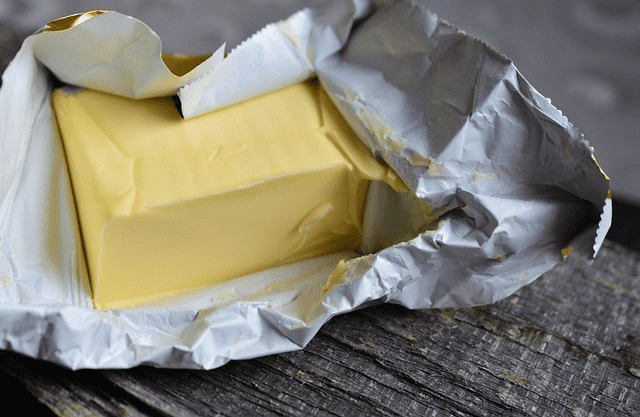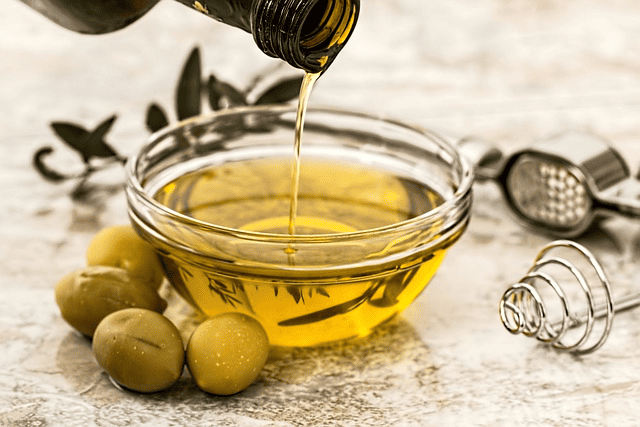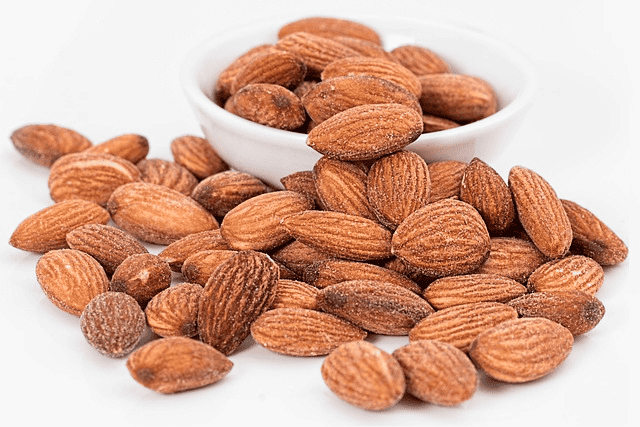There are basically 3 different types of fats, chemically speaking, and these are:
Saturated Fats
fatty acids without any double bonds are known as saturated. They are highly stable, because all the carbon-atom linkages are filled (or saturated) with hydrogen atoms.
They make up at least 50% of our cell membranes, they play a key role in our bones’ health, they protect the liver from some toxins, they enhance the immune system and are needed for the proper use of essential fatty acids such as the omega-3s.
Saturated fats do not normally go rancid, even when heated for cooking purposes.
Saturated fatty acids are found mostly in animal fats (meat and dairy products) and tropical oils such as coconut oil and palm oil.
Your body also makes saturated fats from carbohydrates.
Monounsaturated Fats
These fatty acids have carbon-carbon double bonds and therefore are known as unsaturated.
Your body makes monounsaturated fatty acids from saturated fats and uses them in many different ways.
Like saturated fats, they are relatively stable. They do not go rancid easily and hence can be used in cooking, but at lower temperatures than saturated fats.
The monounsaturated fatty acid most commonly found in our food is oleic acid, the main component of olive oil as well as the almond, peanut, avocado and cashew oils.
Polyunsaturated Fats
These fatty acids have two or more pairs of double bonds and therefore lack four or more hydrogen atoms.
They go rancid very easily, and should not be heated or exposed to oxygen. They are best consumed raw and should not be used in cooking.
The 2 polyunsaturated fatty acids found most often in our foods are linoleic acid, which is also called omega-6 (with 2 double bonds); linolenic acid, which is also called omega-3 (with 3 double bonds).
Your body cannot make these fatty acids and hence they are called “essential.” You must obtain your essential fatty acids (or EFAs) from the foods you eat.
Which Fats Are Good for You?
As you can see, our body needs all 3 kinds of fats: saturated, monounsaturated, and polyunsaturated.
But the more natural these fats are, the better for our body. Generally speaking, the more you alter fats, the less healthy they are.
This is why modern processing methods are so damaging and have really negative consequences on our health.
So, here are the fats that are really good for you:
Saturated Fats
Saturated fats are needed by the body and should be a part of your diet. However, don’t get me wrong: if you have cardiovascular disease or you have metabolic diseases, it’s best to reduce your consumption of saturated fats. It has been shown by research that these fats can be detrimental to your health if you’re not healthy in the first place.
Simply put, saturated fats don’t cause heart disease, but they are not to be consumed in excess if you already have a disease.

| Butter – Butter from pastured-fed cows is best. It can be used in cooking at low to medium temperatures, without allowing it to burn. |
| Lard, Duck fat, Beef tallow – Make sure these fats come from animals that have been pasture-fed, as this will ensure that the fat is not loaded with harmful toxins, and is of good quality. |
| Red meat – Make sure your meat comes from animals that have been pasture-fed. |
| Coconut and coconut oil – Coconut contains protective lauric acid and can be used for cooking. It’s best to choose unrefined coconut oil. |
Monounsaturated Fats

| Olive oil – Olive oil should be extra-virgin, and cold-pressed. This is very important in order to keep its antioxidants intact. It’s best when packaged in opaque containers. |
| Almonds – Almonds contain 31% of monounsaturated fat. Another good source of these fatty acids are Brazil nuts. |
| Butter – Butter is not only a source of saturated fat, but also contains 21% of monounsaturated fat. Again, make sure your butter comes from animals that have been pasture-fed as much as possible. |
| Beef, Chorizo, Pork, Duck – Meat and sausages contain up to 18% monounsaturated fats. Prefer animals that have been pasture fed and not raised industrially. |
| Avocado – Avocados contain about 10% monounsaturated fats. They are a great source of natural fats. |
Polyunsaturated Fats

As long as you avoid commercial vegetable oils and you consume some oily fish such as salmon, sardines or mackerel, you don’t have to worry a lot about polyunsaturated fats. According to research, our intake of these fats should not exceed 4% to 5% of our daily calories.
Avoiding vegetable oils and processed foods, that contain all kinds of bad fats, is essential.
| Almonds, Brazil nuts, Chia seeds, Poppy seeds – These nuts and seeds contain up to 30% polyunsaturated fats. They can be consumed in moderation, as most of these fats are omega-6 fatty acids, which should not be consumed in excess. Nuts and seeds should not be roasted, because this process oxidizes polyunsaturated fats, which is what you want to avoid. |
| Salmon, Chicken, Duck, Pork, Turkey – All these are good sources of polyunsaturated fats. Salmon contains healthy omega-3s and can be consumed in moderation. It’s best to choose pasture-fed animals and wild fish whenever you can. |
Other sources of healthy polyunsaturated fats include olive oil, quinoa, whole wheat, oats, butter, and eggs.
Note that you need to avoid over-consuming modern-day trendy foods such as almond milk and other nut milks, because they contain far too much polyunsaturated fats.
A good rule of thumb is to include some of these healthy fats in every meal, breakfast included.

